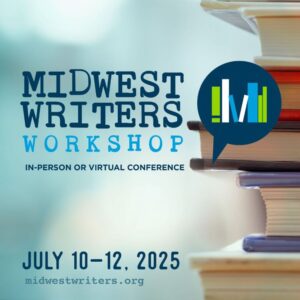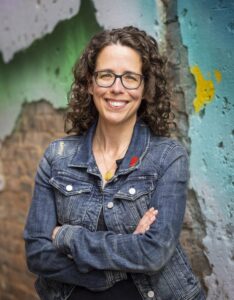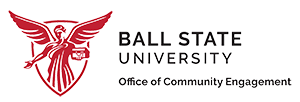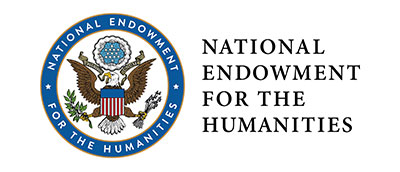Check out the sessions we’re holding at #MWW25
#MWW25’s schedule is looking delectable! Craft, genre, the writing life—no matter what you’re writing or where you are on your work-in-progress, you’ll find something in these sessions to help you along your way, encourage you, and give you a better understanding the writing and publishing journey. And of course, all writers benefit from reaching beyond their usual genre and trying something new. There’s always something to learn!
We can’t wait to see you at the Ball State University Alumni Center in Muncie, Indiana this summer, July 10 – 12. Or you can watch from home—we have a virtual option! All attendees have access to session recordings!
**Registration Coming Soon**
Don’t forget to check out our spectacular #MWW25 faculty
#MWW25 Schedule Preview
“How to Write a Short Story in 60 Minutes, ” Robin Lee Lovelace: Take a look at the elements of short story writing including—character, dialogue and plot—while exploring topics like emotional setting, beginnings and endings. Also, you will create a first draft of your short story. All in 60 minutes.
“On Earth As It Is In Heaven: The Necessity of Poetry & Kinship,” Thomas Kneeland: This is a generative writing workshop space where we’ll both read and write poems that attempt to:
● remind us that kinship is more than the individual bodies we inhabit
● question our beliefs
● move us toward a full and actionable embrace of humanity
By the end of this workshop, participants will leave with a renewed perspective of poetry and humanity, as well as actionable steps toward advancing our communities—both small and large—with better heart posture and powerful poems.
“Changing with the Times” — A Generative Poetry Workshop on Ecological Memory & Ancestry with Thomas Kneeland: At first glance, you may not suspect anything out of the ordinary about your body, but if you just sit with it for a moment, say for the rest of your life, you’ll discover that your body knows a lot more than it lets on. Consider the moments when you unlock a core memory just by smelling or tasting something. Perhaps you’re in conversation with a group of friends and a phrase sends you back to Spring 1994. Maybe your ancestors fled their home country during the height of a civil war. Our bodies remember all of it. Consider these things a matter of ecological memory, which centers itself around the idea that our very existence responds to changes influenced by our individual and collective pasts. In this workshop, we will:
● examine works by poets who explore the concept of ecological memory.
● identify our own ecological memories and respond to them through writing poems.
● share our initial drafts with other workshop participants.
“Revising a Novel Draft by Draft,” Rebecca McKanna: This class will cover the path from “discovery draft” to polished manuscript. Through a mix of lecture, examples, discussion, and in-class exercises, writers will develop a stronger sense of direction for their novel-writing projects and more confidence in their own writing processes.
“Writing Mysteries & Thrillers,” Rebecca McKanna: This class will look at the genre of mystery and thriller novels, covering techniques for building suspense, raising the stakes, creating red herrings, inserting plot twists, and more. Through a mix of lecture, examples, discussion, and in-class exercises, writers will leave with a better understanding of the genre and a start on their own novels.
“Getting the Shape of Your Story in Shape,” Kelsey Timmerman: Notecards strung out across the floor? Giant Post-it notes on the wall beside a whiteboard that hasn’t been erased in 27 years? Red yarn connecting ideas that only make sense to you? You’re either trying to catch a serial killer or you’re a writer struggling with structure. In both cases, you’re sleep-deprived and mumbling things like “it all connects!” to an empty room. This class will introduce strategies to help students draw the shape of their stories. Our goal is for each writer to leave with a tidy drawing that makes sense of their mess of words. (No drawing talent required!)
“Lions, Liars, and AI: Using Experiences, Interviews, and Technology to Sharp Your Nonfiction & Fiction,” Kelsey Timmerman: For my latest book I protected a herd of cattle from lions in Kenya, recorded hundreds of hours of interviews while standing in jungles and on glaciers, and used ChatGPT to brainstorm ideas and refine language. There’s no better technology than boots-on-the-ground experiences to fuel our nonfiction and fiction, but we also live during a time with a host of amazing tools just a few clicks away. In this session we’ll discuss how to get the most out of our lived experiences, and how to put technology to work for our writing.
“The 6 Smartest Ways to Get Editors and Agents Obsessed With Your Query,” Jessica Berg: What makes an editor or agent say, “Tell me more!” instead of “Hard pass”? In this session, we’ll crack the code on creating irresistible query letters by sharpening your hook, customizing your pitch, and sidestepping the traps that get you ghosted. Packed with insider tips and real-life examples, this is your backstage pass to landing the attention your story deserves.
“The Basics of Author Branding: Make Your Name Mean Something,” Jessica Berg: Your brand isn’t just a logo or a tagline—it’s the reason readers pick you. This session will help you uncover what makes your voice unforgettable, craft a brand that screams “must-read,” and build a loyal audience who can’t wait for your next book. Think of it as a branding bootcamp, with the tools and tricks to get your name buzzing in all the right places.
“Is it a memoir when I remember so little?” Ania Spyra: In this workshop you will use images – postcards, photographs, drawings etc. – as a way to jolt your memories awake and jumpstart your writing. You will study the connection between the visual and the written, the lived and the imagined, the factual and the remembered, while engaging in a number of dynamic writing exercises to hone your craft as creative prose writers. Please bring your own childhood photos or other images you find inspiring.
“How to incorporate history in your memoir?” Ania Spyra: In writing memoir, we often come across layered events which only make sense in their contexts. In this presentation, based on my editorial experiences with “Shock Therapy” memoir essay published in Guernica I will take my audience through a series of dynamic writing exercises. I will invite them first to notice how our very personal stories arise at complex geopolitical moments, often unfamiliar to our readers, and second how to convey that complexity without losing the tempo of your narrative to lengthy explanation.
“Crafting a Compelling Romance,” Kay Shanee: Creating a captivating romance involves several key elements that blend seamlessly to engage readers and keep them invested in the story. While both partners play a crucial role, it is often the dynamics between them that truly make a romance memorable. We’ll work on creating a romance with book baes who make you swoon while their counterparts make you proud, creating a combination that will have your readers coming back for more.
“From Idea to Publication: Creating a Children’s Book,” Kay Shanee: Writing a children’s book is an exciting journey that combines creativity, passion, and a touch of magic. The love for reading starts when children are in the womb, and your book might be the one to spark a child’s love for reading. You can transform your idea into a children’s book that excites and inspires young minds. We will discuss how to get your children’s book from an idea into the hands of the next generation.
“What Fiction Writers Can Learn from Pro Wrestling,” Francesca Zappia: Description: Faces? Heels? Heat?? Learn how to use the foundations, lingo, and flair of pro wrestling to make your story unputdownable.
“Writing Mental Health in YA,” Francesca Zappia: Mental health issues are becoming more and more pressing among teens, and it’s more important than ever to write them with an eye toward compassion and connection. Learn how to frame the story, what research to do, and what pitfalls to watch out for.
WITH KEYNOTE SPEECHES FROM
JANE FRIEDMAN AND BRANDO SKYHORSE!
INTRODUCING: Alumni Hour
This is your chance to learn from MWW Alumni who have experienced success in their writing and speaking. We wanted to give them an opportunity to share on topics they’ve perfected, and show our attendees that there is always room for growth and development within MWW
- “Humor Me, Please,” Shel Harrington: Humor is not just for comedy writing – it’s a valuable tool which can be used to enhance all genres. Whether you are going for full-out funny, an amusing character, witty dialogue, or a little levity for a serious topic, the specific strategies presented for injecting humor into your writing will be go-to instruments on your writing tool-belt.“
- “Writing Historical Fiction,” A.D. Nauman: Historical fiction has become one the most popular genres in the US today. Why are readers attracted to it, and why do writers write it? More important, how do we write it? What are the best ways to research? How do we know when we’ve done enough research? How do we get into the minds of people who’ve lived in very different eras? In this session, I’ll share the best common wisdom for writing historical fiction, along with challenges I’ve faced and how I’ve overcome them.
BUT WAIT THERE’S MORE!
- INTRODUCING “Power Hour”: There are too many topics to cover in one conference, even when it’s three days! In this session, faculty will deliver five minute spiels of condensed wisdom on a topic of their choosing
- Panels covering Submissions and writing contests, Responding to Readers’ Responses, and topics in writing craft
- Author Office Hours: Have you ever wanted to sit with a published author and pick their brains on topics like: publishing, revising, or anything that relates to becoming an author? This is your opportunity. You don’t need an appointment, just drop in for this informal session with an author. Available for all in-person attendees
- Quiet Writing Area (with prompts available): Need a place to capture some of that inspiration, or just to catch your breath? We’ll have a small space dedicated to peace and quiet
- Late Night VIRTUAL TalkAbouts: This is a great time for the in-person attendees to hurry back to their hotel rooms, jump into their pajamas, and join the online attendees for a late night gabfest about everything we saw and heard during the day. We can also share work and ask questions, and finish the evening with a writing sprint to get ready for the next day of writing and learning
REGISTRATION COMING SOON!
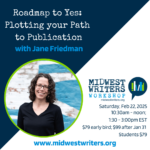 “Roadmap to Yes: Plotting Your Path to Publication”
“Roadmap to Yes: Plotting Your Path to Publication”
In this masterclass, you’ll learn the mechanics of how traditional publishing works and how to prepare submissions materials for your novel, memoir, or nonfiction book. Learn what it takes to capture the attention of a New York publisher or literary agent, plus what expectations you should have so that you approach this (often frustrating) process with the right expectations and mindset.
Saturday, February 22
Early bird registration ends January 31!
Register here
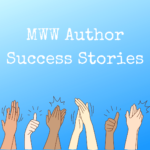 Finish an essay, a book, a paragraph? Have something published? Tell us about something exciting you’ve done with writing and/or publishing in the past year. Bonus points if you can tell us how MWW has made an impact on your writing.
Finish an essay, a book, a paragraph? Have something published? Tell us about something exciting you’ve done with writing and/or publishing in the past year. Bonus points if you can tell us how MWW has made an impact on your writing.
Send your success stories to midwestwritersworkshop@gmail.com and we’ll post it on our website!
MWW is dedicated to building a community where writers can network
with others and grow
This ad space could be yours! MWW publishes four digital newsletters a month. With nearly 4,000 subscribers and a 42+% open rate, we offer an excellent venue for reaching your target audience.
You can also be featured in our event programs!
Check out our advertising opportunities.
SEE WHAT ELSE MWW HAS TO OFFER
- MWW Writing Service: Receive manuscript evaluations from our experts
- Midwest Writers Workshop Facebook Group: Join our community to network, support, celebrate, and commiserate with other writers



